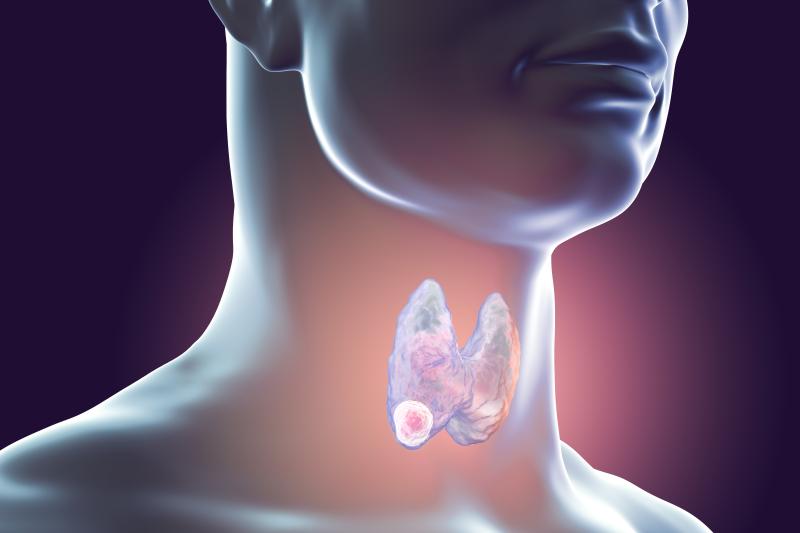
Symptomatic thyroid dysfunctions appear to be rare among well-treated people living with HIV, a recent study has found.
Researchers retrospectively assessed 6,343 patients with HIV, of whom 123 (mean age at the end of follow-up, 47.15±11.56 years; 52.03 percent male) were positively diagnosed with a thyroid disease (TD). The overall prevalence rate was 1.94 percent.
All patients had had HIV by the time they were diagnosed with TDs. Most of the diagnoses were of hypothyroidism (n=81), followed by hyperthyroidism (n=21) and primitive thyroid cancers (n=11). The mean time from HIV to TD diagnosis was 11.04 years, and participants were aged 46.6 years on average upon TD detection.
Incidence analysis was limited to the time period between 2005 and 2016. A total of 5,337 with at least two visits were eligible for this analysis, contributing a total of 42,251.71 person-years of follow-up. Ninety-six incident TD cases were recorded, yielding a crude incidence rate of 2.2 per 1,000 persons. This tended to be lower among males than females (1.6 vs 3.8 cases per 1,000 persons).
Temporal analysis was carried out using Poisson regression, which found that for each 3-year period, the incidence rate of TDs increased by 25 percent (incident relative risk [IRR], 1.25, 95 percent confidence interval [CI], 1.04–1.50; p=0.02). This was driven primarily by incidence spikes among females (IRR, 1.03–1.78; p=0.03).
While being male appeared to be significantly protective against TDs, being older at the time of HIV testing appeared to be a significant risk factor. Each 10-year increment, for instance, increased the likelihood of TD by 24 percent (odds ratio, 1.24, 95 percent CI, 1.06–1.45; p=0.005).